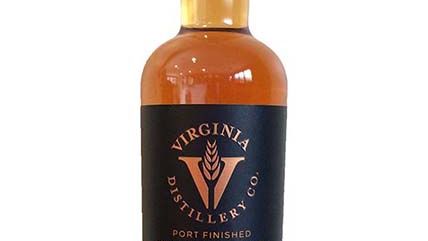Virginia Distilleries

Craft distilling is burgeoning in America, with around 800 distilleries making small batch rums, vodkas, gins, and whiskeys. The industry took off after 1980, when the government lifted the requirement that a federal agent be on-site daily at such booze-making operations.
Nevertheless, the spirits industry remains strangled in red tape, especially in Alcoholic Beverage Control (ABC) monopoly states such as Virginia. In December I visited three Charlottesville-area craft distilleries—Silverback, Vitae Spirits, and Virginia Distillery Co.—to sample their offerings. At each, existing law held me back to a measly three ounces of imbibing. Still, that is a big improvement over last year, when customers could sample just two ounces, let alone the year before, when in-house sipping was rationed at one and a half ounces.
And six years ago, would-be tipplers could only "nose" but not sip spirits at distilleries in the state. There are no such prescribed limits on quaffing at any of Virginia's 262 wineries and 70 breweries; the hard stuff is held to harder standards. The bureaucratic workaround to the ABC monopoly is to license distillery tasting rooms as ABC stores. Distillers must buy their own product and send all in-store sales receipts to the ABC Board, which then returns the wholesale price back to the distilleries.
As of August 1, 2016, Virginia distilleries can sell directly to restaurants. The catch is that they can't deliver their product; restaurateurs must physically go to distilleries to make their purchases.
"Progress in changing liquor regulations is made incrementally," says Virginia Distillers Association President Gareth Moore, who is also CEO of Virginia Distillery Co. He noted that the new three-ounce limit enables customers to try several products in half-ounce pours and enjoy a single full cocktail during their visits. Moore next hopes to change the law to allow distillers to sell bottles at local festivals.
This article originally appeared in print under the headline "Virginia Distilleries."


Show Comments (0)